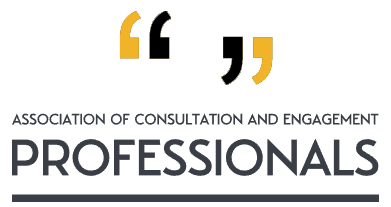The aim of this project is to understand the experience and impact of telling staff about, or disclosing, childhood trauma in community mental health teams (CMHTs) and to develop ways for community mental health care co-ordinators to improve this process.
Background:
Experiences of abuse, neglect, domestic, severe bullying and community violence in childhood are very common among people who use mental health services. These often have big impacts on people’s mental health. When a person decides to disclose or talk about childhood trauma it can help with healing. However, mental health service users’ experiences of disclosing trauma does not always support healing or recovery. Staff often lack confidence and organisational support to ask about childhood traumatic events and struggle to know how to respond to disclosures or what kind of follow up support can be offered.
Research methods:
A research method called experience-based co-design will be used to find different ways of supporting staff to safely have conversations about childhood trauma with service users. Experience-based co-design involves;
- Exploring experiences of service users’ and staff through in-depth interviewing, observations and group discussions;
- Creating a short film of service users’ experiences which helps staff and service users work together to identify areas for improvement and explore potential solutions;
- Staff and service users working together in co-design teams to develop the ideas into actionable changes to service delivery
The intervention, co-designed with service users and staff, could include:
- A training package for community mental health team staff
- A toolkit for clinicians to help them to safely talk about childhood trauma with service users.
- Changes to the physical environment to make it feel safer
- A discussion group for staff
The intervention will be delivered to community mental health team (CMHT) care co-ordinators. The researchers will make changes to the intervention based on feedback.
To conduct high quality, meaningful and ethical research they will work together with service users and clinicians at every stage of the research process. This will help ensure that findings are relevant to service users, staff and the NHS.
A Lived Experience Advisory Panel (LEAP) and Clinical Advisory Panel (CAP) will meet regularly during the four-year study to; oversee the project, help write the information that will be given to service users and staff who take part in the research, help with data analysis; and be supported to present on and write about research.
They are looking for:
The research team are looking for six adults (age 18+) with lived experience of adverse childhood experiences, in the UK, to join our Lived Experience Advisory Group (LEAG). LEAG members will use their knowledge and expertise to advise and steer the design and delivery of the research project.
Criteria for involvement is:
- Age 18+
- Have lived experience of adverse childhood experiences (ACEs)
- Have sought help for your mental health from NHS services
Expected commitment from participants:
The project will take place over three years from March 2024 to February 2027. At the moment, they are planning to hold a total of 10 meetings, one every 3-4 months, lasting 2 hours each. Meeting will be held online via zoom.
Activities will include
- Reading information about the study
- Sharing your views on the study findings
- Considering any ethical and sensitive issues for the research
- Contributing to shaping study documents
- Participating in regular meetings (online) every 3-4 months
Commitment to inclusion:
Safety:
You will not be asked or expected to share your personal stories but people may discuss their own experiences in order to share their views on the topic. Due to the sensitive nature of the topic some people may find this distressing. They want to make sure you feel safe and acknowledge that this may not be suitable for everyone, so please do consider this before submitting your interest.
Accessibility:
Meeting will be held online via zoom, they can arrange a meeting prior to discuss any technical support which may be required.
LEAG members will be provided with training, support, travel expenses (if they wish to attend any workshops in person).
Support and wellbeing:
They aim to create a safe space in which all LEAG members feel able to share and participate as much, or as little, as they like.
All participants will be sent safety guidelines prior to the meetings which outlines how you can keep each other safe which you will discuss and revise as a group.
Study documents will be sent prior to the LEAG workshop for members to view in their own time before the meeting.
They will offer 1:1 conversations with LEAP members to discuss if any they can make any adaptions to help them to feel safe, supported and fully included in LEAG meetings.
Training and development:
They aim to identify any involvement or training needs early on and they will support accordingly with relevant activities (either 1:1 or with the group as a whole).
Closing date to apply: 2nd March at 23:59pm
The post The ACCEPT Study: Lived Experience Advisory Role appeared first on Shaping Our Lives.
